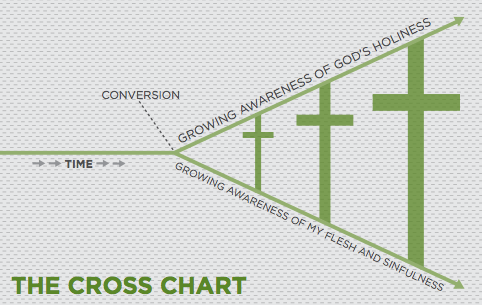“Ultimately the problem is not a SKIN problem, it is a SIN problem” (Benjamin Watson, football player for the New Orleans Saints). There is a lot of talk about racism centered on recent events in Ferguson. Much of it is characterized by divisiveness, proclaiming what is wrong with “those people over there.” People condemn other people for what they perceive to be the real problem. Ask as you read: Is the author making himself out to have the best vantage point on a complicated matter that others don’t seem to be able to comprehend? Does he belittle those who disagree with him? When he points out the heart of the problem, does he include himself among those with potential fault? If he presents a solution, does it involve his own change at a deep level, or does it only demand the change of others? Is the tone antagonistic? When you read it, are you tempted to feel superior to others, or distinct from others? It may be that such writers are contributing to the real problem rather than helping.
On a personal level, racism isn’t that mysterious or complicated. It’s in our nature to find any available reason to distinguish ourselves from others. Every single one of us does that, all the time. I want to be better than you, intrinsically, for everything that makes me me and not you. You want the same thing. We use our uniqueness, our individuality, to create distance for the sake of self-exaltation. We’ll exaggerate our differences, imagining them to be so deep, so fundamental, so essential, that clearly we’ll be justified in never questioning our superiority based on these things. It’s no wonder that we’d use skin color as one of many everyday strategies in the self-exaltation project. “How obvious could it be? It’s right there on the surface, for everyone to see. Just imagine the vast differences that lurk beneath the surface…”
That’s nothing mysterious or complicated. That’s right at the heart of our problem as sinful human beings. If we’re blind to it in ourselves, it’s not because it’s a difficult concept to grasp, it’s because we refuse to grasp it. People in the pursuit of self-exaltation hate to be made aware of the fact that they’re in the pursuit of self-exaltation. (Apparently it’s difficult to be self-righteous about true self-awareness.)
Now, things might get a bit more complicated when you begin to consider societal structures, ways in which those of us with “power” have shaped the surroundings in order to give expression to our preferred illusions of self-exaltation. It’s a hideous, tangled web created when supremely self-centered individuals find ways to advance themselves in the presence of (in league with?) other supremely self-centered individuals.
But ultimately, as Benjamin Watson said, “it is a sin problem.” What we all share in the universal problem of sin is far more profound than any distinctions we like to make among ourselves based on individual traits. (In fact, there are many profound things universal to human beings that should unite us despite the differences we like to amplify.) I’m just as self-centered as you are. We’re all in this boat together. When we talk about racism, when we condemn it as a societal problem, we should just assume that it’s “my” problem, “our” problem… rather than “his” problem. And when we consider a solution, it should be a solution to the real problem—our real problem—sin. Then, with Watson, we can be encouraged because God has already addressed our real problem in the person and work of his Son Jesus Christ. We don’t have to be overwhelmed with despair when we consider the problem, because there’s a wonderful solution already available to us in the Gospel.
We all were made in the image of the Triune God, the God whose Being is Three Persons, distinct but inseparable. This means we were made for community together, mutual love, true self-giving. The individual traits we were given are meant, not to divide, but to make the unity more glorious, more “colorful.” We’ve all gone precisely against our created purpose in our pursuit of self-exaltation, first and foremost in exalting ourselves over and against our Creator. But, by his grace, God forgives our sins and creates us anew in his image. We might highlight the differences between our personal, cultural, ethnic stories, but we all share a “sin story,” and we need a new one. We have been freely given a new story in the Gospel. Jesus Christ, the Son of God, the perfectly selfless human, lived for us. His story is our new story. His love is ours, his dignity is ours, his power is ours, his glory is ours. And his death is ours—in it, our self-centered self died, so that we could be raised to a new life in his resurrection, a new life standing forgiven and accepted by God, a new life together, where our individual gifts are meant to glorify and delight the whole, rather than set us apart from each other.
Politics won’t get us there. Money won’t get us there. Public demonstrations won’t get us there. Blogs, articles, and books won’t get us there. The Gospel of Jesus Christ has already gotten us there. (Read Ephesians to see how the church is, already, a result of the Gospel—but that’s another post.) The Kingdom of God is materialized in this world wherever people believe the Gospel. So believe it.

